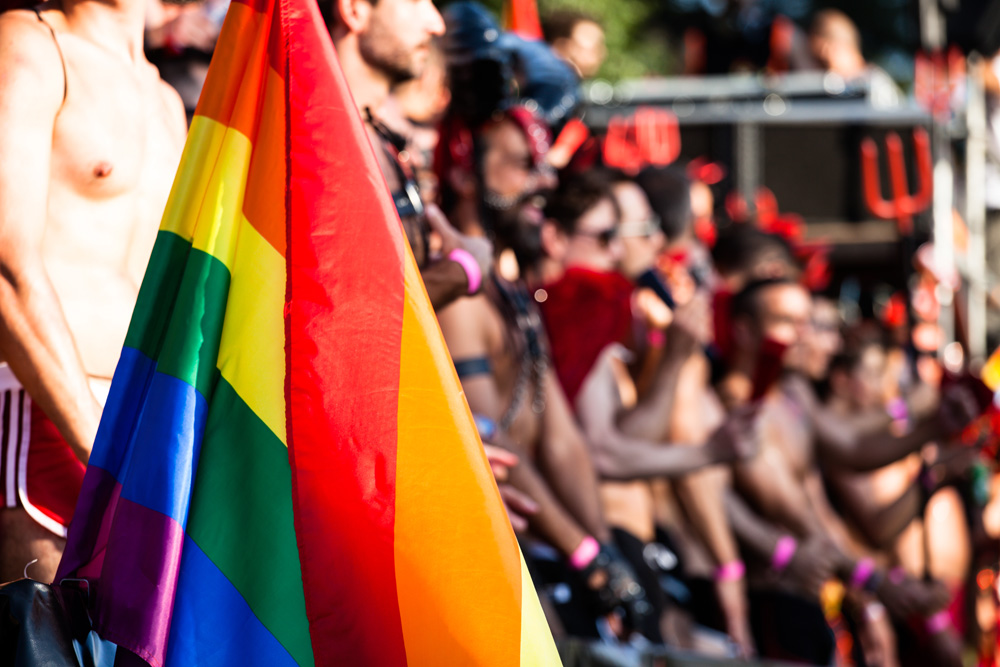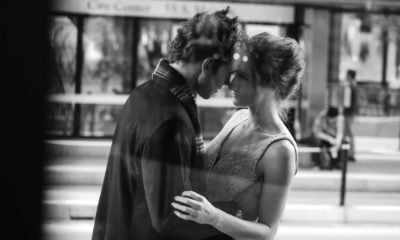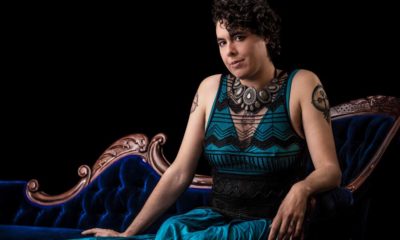LGBTQ
The invisible LGBT people in ASEAN: Part 2
2. The least developed: Cambodia, Laos and Myanmar
Known as CLM, the trio is far from safe and comfortable environment for LGBT people. The process of legal policies for protection and rights of sexual minorities is rather slow, but a promising civil society has been springing up, especially in Cambodia. “There is a strong emergent activist scene there,” says Ng Yi-Sheng from ASEAN SOGIE Caucus in Singapore. The Pride Week event in mid-May ran for a whole week in the capital city of Phnom Penh, as a lead-up to the International Day against Homophobia and Transphobia. The six-day festival featured workshops on family acceptance and LGBT issues, film screenings, Buddhist blessing ceremonies at Wat Samrong, fashion shows, concerts, and the pride parade. In Buddhist Cambodia, religion does not necessarily teach that homosexuality is wrong. However, traditionalism in Cambodian families makes it hard for one to be accepted by his closest ones. It is of a major help that many of the high ranking representatives in the country had been speaking out for acceptance of LGBT people in recent years, such as PM Hun Sen and the late King Norodom Sihanouk. Although Cambodia’s constitution prohibits same-sex marriage, accounts of support and even legalization of lesbian unions, have been reported on a local level in Cambodia. In several provinces, local community chiefs have often granted ‘family documents’ to lesbian couples.
Many would agree that in Laos, civil society is almost absent as years of communist government have silenced free media and activism. While a few have been trying to bring about positive change on a community level through education and sustainability, the case of disappearance of prominent activist Sombath Somphone speaks for itself. Nevertheless, LGBT people in Laos have been quite active in organizing events to raise awareness in the mostly rural and conservative society. In 2012, the first gay pride “Proud to be Us!” took place in the capital Vientiane. Around 100 lesbian, gay, bisexual and transgender people had gathered on a US embassy sports field to watch performances pointing to the marginalization of LGBT people in Laos. The event was organized by the US embassy and local activists, and a senior government official attended the event as well. “The aim was to show that we can live and work together in harmony and that LGBT people can contribute enormously to the country given the opportunity. We have never had an event like this. I feel empowered that this is the first step that can take us forward,” event organizer, Anan Bouapha, told Agence France-Presse (AFP). Although homosexuality is legal in Laos and there are rarely victims of violence, the LGBT community faces discrimination, especially when seeking employment in government or other higher status professions. Many are therefore left with poorly paid jobs or end up working in the sex industry.
Myanmar, or Burma if you like, is one of the ex-colonies of Great Britain, that still keeps in place the infamous sodomy law, prohibiting sexual intercourse between adult males. While the penal code is not strictly enforced by authorities, activists note that harassment and discrimination of sexual minorities are rampant. Trans-women have been reported to be regularly harassed by police and authorities. After the end of military regime and civilian government installed after the first elections in 20 years in November 2010, taboos concerning homosexuality began to relax. Myanmar held its first gay pride event in 2012 and this year in March, the first ever public gay wedding took place. Although the couple wasn’t granted legal status, it is at least a small step towards acceptance of different sexual orientation and same-sex relations in Burma.
3. LGBT and Islam: Indonesia vs. Malaysia and far away Brunei
A typical stereotype of Islamic countries’ hostility towards sexual minorities is short of the variety of cultures in Southeast Asia. Indonesia is a good example. Although the country has the largest Muslim population in the world, tolerance “highly varies within the country. While the level of queer acceptance is high in some areas, danger of religiously motivated attacks persists elsewhere,” says Ng Yi-Sheng from Singapore’s Committee of ASEAN SOGIE Caucus. Indonesia has secularist constitution and homosexuality is legal, but a recent poll shows 93 percent of Indonesians feel homosexual couples should not be accepted. While most Indonesians practice moderate Islam, hardline Islamic groups are on the rise, constantly pushing the officially secular government. In 2002, Aceh province was granted the right to use Sharia law, which criminalizes homosexuality. A year later, proposal to criminalize same-sex relations in Indonesia failed. That was more than ten years ago. While legally, the country is obviously not keen on cracking down on sexual minorities, the perception of them is another issue. Just last year Banda Aceh Deputy Mayor Illiza Sa’aduddin Djamal talked of homosexuality as “a social disease that should be eradicated” and a punishment of 100 public lashes for offenders.
On the other hand, Malaysia has a much clearer stand with a Muslim majority and Islamic constitution; homosexuality remains illegal by the colonial-era sodomy law, criminalizing homosexual intercourse. Intolerance is rather increasing with the institutional islamization of Malaysia. The International Gay and Lesbian Human Rights Commission (IGLHRC)’s report on LGBT rights in Malaysia concluded that these people face rising hostility, discrimination and abuses. There is no protection for them in the political system. Increasingly present is the state-administered Sharia law, which criminalizes lesbian sexual intercourse (musahaqah), sex between men (sodomy), sex “against the order of nature” (liwat), and also “impersonating” opposite sex, such as cross-dressing. The government is keen on developing a particular “Malaysian vision” and the LGBT people are clearly not part of it. Sexual orientation and gender identity issues are rejected by Malaysia at all human rights platforms: national, regional (ASEAN) and international (UN).
At the end of ASEAN’S LGBT tail is Brunei, recently slammed across the world for passing a new penal code that calls for death by stoning for same-sex relations. Those have long been illegal in Brunei, though the maximum punishment was ten years of jail. The only solace for LGBT community there is that Brunei has been holding an effective moratorium on death sentences since 1957. Many are hopeful this custom will continue. Others point to the obvious fact that criminalization and death penalty for same-sex relations between adults violate rights to privacy, equality, freedom from arbitrary arrest and detention.
Part 1 can be read here https://simplysxy.com/articles/2014/07/05/the-invisible-lgbt-people-in-asean/
Part 3 to follow can be read here at https://simplysxy.com/articles/2014/07/06/the-invisible-lgbt-people-in-asean-part-3/
Image courtesy of Shutterstock
Join SimplySxy’s forum discussions now on Society
Do not miss another article on SimplySxy! Follow us on Facebook and Twitter for our latest updates!
Alexandra Demetrianova is a freelance journalist and former Southeast Asia/Asia correspondent for Slovak Radio – the public broadcaster in Slovakia. For four years she has been covering Thailand and the wider region for radio and major Slovak press titles, with issues ranging from politics and economy to society, culture, religion, environment and current issues in Southeast Asia. As a sole Slovak correspondent in Asia, she has also focused on commenting and analysis of China, Japan, Koreas and India.
Alexandra studied journalism and mass media at Comenius University and later Pan-European University in Bratislava, Slovakia, where she achieved Bachelor of Arts (2010). Starting journalist work as early as her studies (2006), she has worked for major press as well as audiovisual media in Slovak market. She went on to study Master in International Relations at Thammasat University in Bangkok, where she extended her work to academic research and event projects. She has co-organized Thammasat Human Rights Film Festival (2012) and later Common Lives Film Festival, a side event of ICIRD held at Chulalongkorn University (2013). She is based in Bangkok.






























